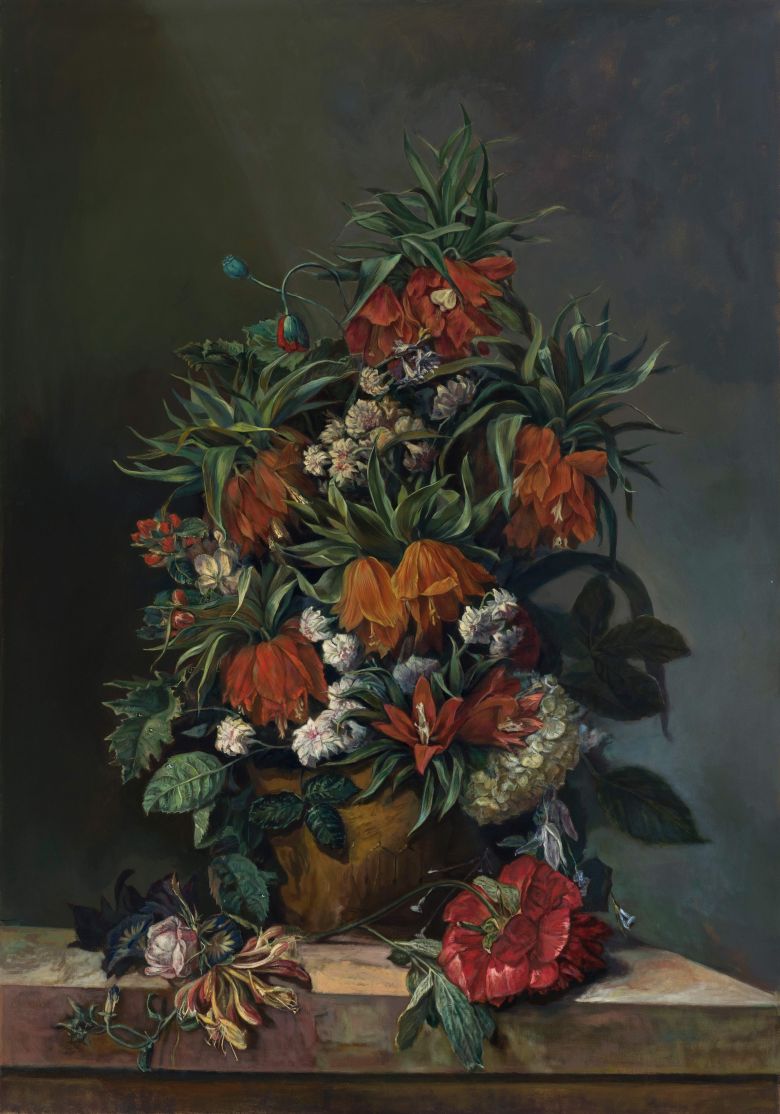This project is based on a fictional story which is centred on the ideal landscape of home, a homeland perceived primarily from a distance through memory. This imaginary landscape has been portrayed through a fictional imagery, shaped over time after experiences of displacement.
It is focused on an individual who works both as an artist/painter and as a London bus driver. Her paintings primarily feature flowers called Fritillaria Imperialis or Crown Imperial, which represent her daydreams of a romanticised homeland. The Fritillaria Imperialis originated in the Iranian mountains called Alborz. Considered as one of the most distinctive flowers for its unique characteristics, it has acquired symbolic significance in the myths and legends in Persian and Turkish cultures. In particular its uncommon shape with the petals hanging downward and its leaves that give the shape of the plant wearing a crown.
“Impossible Bouquets” is the name of the 17th century paintings by Dutch masters. These paintings depict different flowers, which were considered as “exotic”’flowers, placed in a vase, even though they could never coexist because of different geographical and seasonal origins. The flower paintings reflected the fashionable interests of botanists, who traded seeds and bulbs hoping to cultivate new floral varieties. The main idea behind these paintings was to present a view of floral scenes to be enjoyed all seasons and all year long. In other words, these Bouquets paintings did not aim to reflect reality, but rather served as representations of “fantasy”.
Adopting the format of an interview focused on the artist’s life, the fantasy world is created. This world is built through the interactive exchange of ideas and thoughts between the artist and interviewer/visitor, who in this case happens to be the actual artist of the painting. The conversation revolves around their position and role in society and the art scene.
By creating a character and naming these paintings after him/her, this approach serves to challenge notions of authorship and identity, the latter in particular is related to the Diaspora experience. Ultimately, the project raises the question of ‘Whether should I, as the narrator who is also the viewer/visitor, identify myself as the bus driver, the artist, both or neither?” In other words, the project explores the question of authorship and authenticity of the artwork as an additional point of reference.
Video, images, and text courtesy of the artist.
Pegah Keshmirshekan, “Imaginary Homeland,” in mohit.art NOTES #6 (October 2023); published on www.mohit.art, September 14, 2023.
